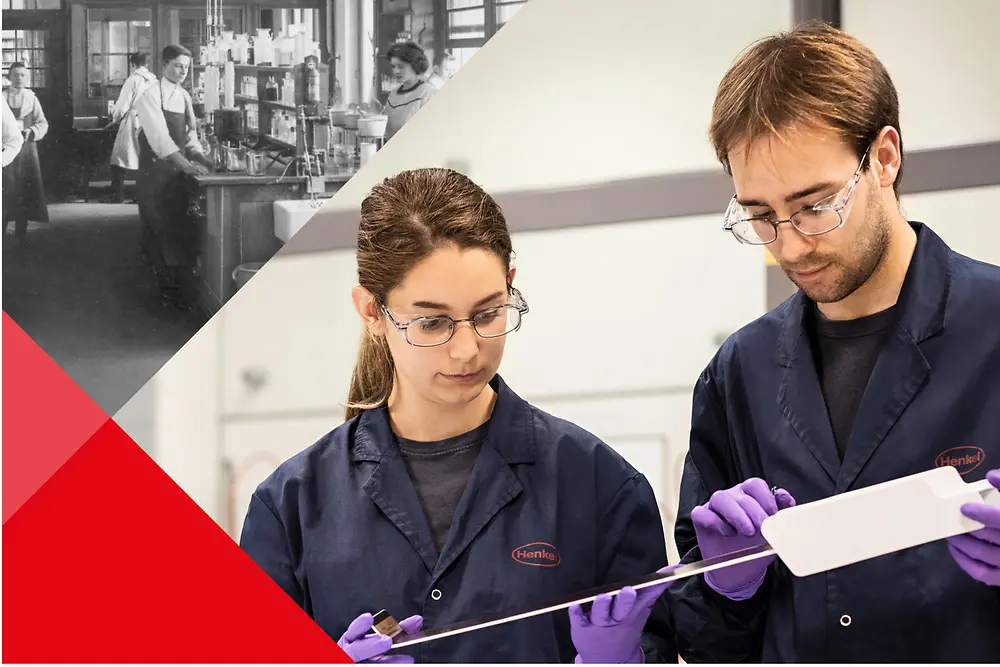Découvrez les marques et les technologies de nos unités commerciales Henkel Adhesive Technologies et Henkel Consumer Brands.
Rethinking Plastic Waste Reduction Amidst the COVID-19 Backdrop

Each year, America Recycles Day® — a Keep America Beautiful® national program dedicated to celebrating and promoting recycling in the U.S. — provides an opportunity for us to not only educate people, but also inspire lasting change. Now more than ever, as we continue to see the wide-reaching impact of the COVID-19 pandemic on our communities and environment, it’s important for us to help drive initiatives that support litter prevention and recycling, and ultimately drive long-term models like a circular economy.
Since the beginning of the pandemic, people wearing and disposing of single-use personal protective equipment (PPE), including masks and gloves, to prevent the spread of the virus has created an entirely new category of modern waste. Alarmingly, there has been an increase in littered wipes, gloves, and other related items found on the streets, walking trails, and behind or near supermarkets and pharmacies. This has created concern among environmentalists who note that PPE litter could also add to the approximately 8 million metric tons of plastic that enter the oceans annually.

Keep America Beautiful is proud to partner with companies like Henkel that manufacture consumer goods across laundry, home care, hair and beauty in North America, to support and establish initiatives across the entire value chain.
Helen Lowman, President & CEO, Keep America Beautiful
At Keep America Beautiful, we understand the vital role that PPE plays in keeping us safe during this challenging time, and we also recognize that a critical part to keeping our communities safe is the proper disposal of these products. Here are a few simple tips and practices to help keep you, your family, and your community safe:
- Reserve/Reuse: The more sophisticated masks, such as N95, should be reserved for medical personnel, front line responders, and essential workers. Individuals should craft face masks from materials they have at home that can be sanitized (washed in soap and water) and reused. Keeping your hands away from your face and hand washing following official guidelines is the best practice for individual protection and slowing the spread of the virus.
- Dispose: Used masks, gloves, and wipes should NOT BE LITTERED, but disposed of in secure household or commercial trash containers. These items are not recyclable and should not be placed in recycling collection bins.
- How to dispose when a trash bin is not available: Used masks, gloves, and wipes should be removed according to official guidelines, and placed into a bag for transport or disposed in a trash container as soon as possible.
- Help keep workers, customers, and community safe: Retailers are strongly encouraged to provide frequently serviced trash receptacles in highly accessible areas to prevent the littering of used masks, gloves, and wipes.
While simple practices and tips like these can help eliminate plastic waste and encourage the continual use of materials, we also need to focus on ensuring that we’re establishing programs that extend beyond the pandemic. Keep America Beautiful is proud to partner with companies like Henkel that manufacture consumer goods across laundry, home care, hair and beauty in North America, to support and establish initiatives across the entire value chain.
For example, Henkel has committed to ensuring that 100 percent of its packaging will be recyclable or reusable by 2025. And its North America consumer products manufacturing facilities are also on target to achieve zero waste to landfill by next year.
With the support of companies like Henkel, we inspire and educate people to take action every day to improve and beautify their communities, even during this difficult time. This type of collaboration helps us increase awareness and leverage resources that allow us to bring much-needed programs to communities throughout the U.S. that ultimately save resources and energy, reduce GHG emissions, support a circular economy, create jobs, and support public spaces where people can gather and enjoy.










